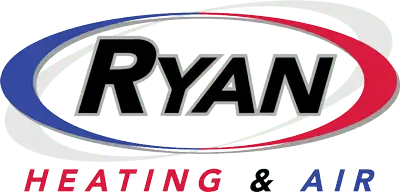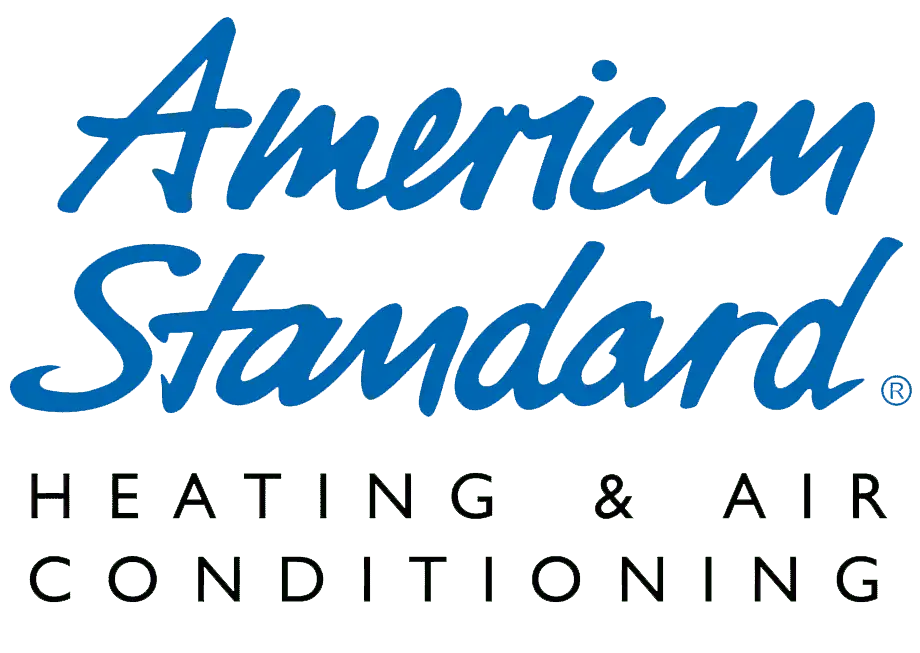An HVAC system acts as a home’s respiratory system, regulating temperature and airflow. It also helps filter airborne particles and maintain humidity levels in the home. Properly functioning HVAC systems are essential for keeping a healthy, comfortable living environment. Regular maintenance of your HVAC system is important for its efficient operation. An annual tune-up can help identify potential issues before they become serious problems that require costly repairs
An experienced technician can inspect your system, suggest repairs and upgrades as needed, and explain how to best use the system to maximize energy efficiency. In addition to proper maintenance, it is also important to regularly replace filters and keep vents clean. Our certified technicians are trained in the installation, maintenance, and repair of home HVAC systems. We offer quality installation services at competitive rates. Contact us today to learn more about how our team can help you improve your indoor air quality!
How much does an HVAC installation cost?
With a lifespan of 10-20 years, replacing an HVAC system can be expensive – averaging $7,500 but ranging from $5,000-$12,000 depending on size and brand. Before replacing an existing HVAC system, consider the benefits of investing in a new energy-efficient model. With modern advances, today’s HVAC systems run more efficiently and provide reliable comfort while meeting stricter government requirements for indoor air quality. Energy Star-rated systems can save you up to 30% on monthly energy bills compared to older models.
Ignoring a broken or poorly functioning HVAC can lead to high heating/cooling bills and uncomfortable living space. The cost of replacing an HVAC system can be managed by researching the project and its potential costs beforehand.

HVAC Installation Cost by Type
When deciding what type of HVAC installation is needed, you’ll need to understand the different systems involved. HVAC, Heating, Ventilation, and Air Conditioning can represent multiple HVAC systems in your home that work together to heat or cool the air. For instance, if your air conditioner breaks down in summer, you might not need to replace your furnace entirely but could probably need a new AC unit. Every type of HVAC system comes in different models and subtypes, depending on your preference and home compatibility.
Air Conditioner costs
Air conditioning is a necessary amenity during the hot summer months. Depending on the type of air conditioner and installation, the cost can range from $1,200 to $8,000. However, most people end up paying more than this because AC systems break down during the hottest months. In fact, the average cost for an AC unit is around $3,000, but it can be more or less depending on factors like location and whether or not you purchase a window unit.
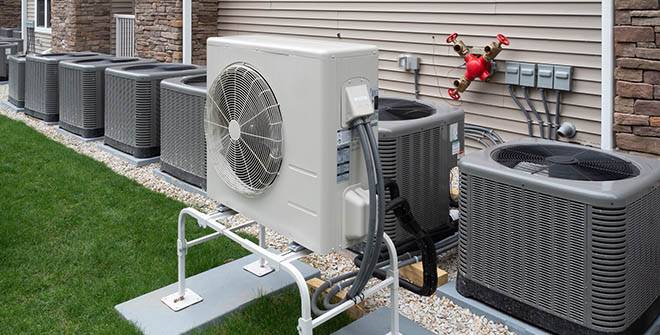
Furnace costs
The most popular kind of heating system, furnaces warm your home by pushing air through the ducts and vents of your house. Although a furnace is a separate device from your air conditioner, it frequently shares ductwork for ventilation and circulation. Depending on the type you select, the total cost to install a furnace can range from $1,500 to $9,000 in total.
Heat Pump Costs
Although the HVAC system in most homes is made up of split heating and cooling units, there are high-efficiency hybrid choices, such as heat pumps, for people who desire just one unit to perform the job. Heat pumps typically cost between $2,000 to $30,000, with installation fees included. This is significantly more expensive than the price of other HVAC systems. This is due to the fact that they combine heating and cooling and generally consume less energy, saving you money on your power and gas bills.
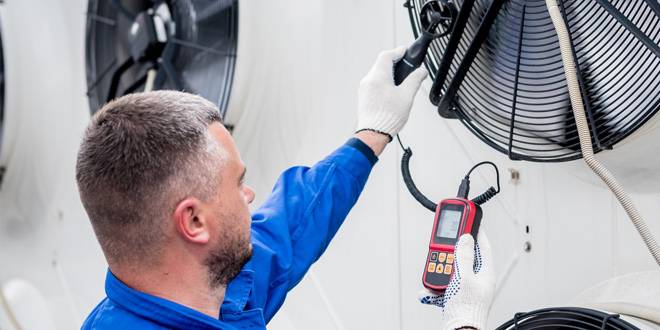
Sizing Up HVAC Systems
The size of the unit has a significant impact on the air quality. The air in your home cannot be properly treated if the unit is too small. A too-large unit runs the danger of compromising energy efficiency and might even turn off before the air has had a chance to circulate through the system completely. It is best to consult a professional on all issues, including unit size, while thinking about how to install an air conditioning unit.
The size of the unit is also influenced by the heat gain of your home. The specialist will estimate how much heat is released into the living area while examining your home. The computation of heat gain is impacted by a variety of factors, including the positioning of doors and windows and the position of your home with the direction of the sun. The qualified technician will be able to choose the most energy-efficient unit for your space with the help of our expertise in how much heat your home typically retains.
Residential HVAC Unit Caused Energy Efficiency
The season energy-efficiency rate, or SEER, which your specialist will calculate during the inspection, is used to assess energy efficiency. The rating varies according to how much electricity is required to run the air conditioner. You will pay less because of higher SEER ratings, and the expert will make sure that your HVAC system keeps up with the energy efficiency of your house.
Factors That Affect HVAC Replacement Cost
1. Type AC systems
Numerous shapes, sizes, cooling capacities and energy efficiency ratings are available in the manufacturing of air conditioning systems. In terms of the cost of the system, its components, and expert installation, the type of air conditioning system chosen has a considerable impact on the cost of ac installation. Ducted split systems, ductless air conditioners, heat pumps, and packaged central air conditioner systems are the four most popular types of air conditioning systems. To match a certain budget and enable consumers to take advantage of a comfortable indoor atmosphere, Ryan Heating & Air offers three alternatives for ac unit installations, ranging from good to most efficient.
2. Size of the Equipment & Cooling Capacity
Bigger is not necessarily better when deciding on the size of your new system. The size of the AC unit primarily refers to cooling capacity; nevertheless, there are other factors to take into account when selecting a new HVAC system. Because the system’s cooling capacity is insufficient for the required enclosed design, the equipment cost increases as the system size increases. Undersized units with insufficient cooling capacity may operate continuously, producing ineffective cooling and raising monthly utility costs.
The interiors of oversized units with excessively large cooling capacities may cool down too rapidly, removing the necessary indoor humidity and causing the unit to operate unevenly and experience premature wear and tear, which could result in future system failures. The knowledgeable professionals at our HVAC company in Chattanooga, Tennessee will measure the interiors and ask a variety of questions to make sure your unit is sized appropriately for the amount of space it will occupy and the amount of energy it will need to operate.
3. SEER Ratings
The Seasonal Energy Efficiency Ratio is one of the most crucial characteristics that set HVAC systems apart from one another (SEER). The SEER rating system, developed by the Air Conditioning, Heating, and Refrigeration Institute (AHRI), measures the effectiveness of air conditioning systems by taking into account both the cooling output of a unit and the total electrical energy used over the course of a season. The unit is more energy-efficient with a higher SEER rating. Similar to this, a unit’s cost increases with its predicted energy efficiency. Yet, the operating costs of systems that deliver more energy savings and operational efficiency are often lower. Lower monthly electricity expenditures effectively cover the equipment’s additional cost.
The federal government of the United States mandates that air conditioners have a SEER rating that varies from at least 13 (poor efficiency) to more than 28 (high efficiency) (high efficiency). Yet, the ongoing need for users to sufficiently chill the interiors during the majority of the year may need additional factors when determining the energy efficiency of an AC unit. For more information on how to save energy in your home or business, get in touch with us.
4. Additional Installations
Other factors that affect HVAC installation prices include system additions and ongoing heating system replacements, in addition to the price of the unit and the cost of AC installation. While installing an air conditioner, homeowners who want to take full use of the advantages of their indoor cooling system may choose to add UV air purifiers, humidification systems, or dehumidification systems.
5. Ductwork, vents, and returns
The existence of ductwork in a living area and/or its condition are additional cost factors. The price of installing your new system will probably go up if the house needs new ducting installed or ducts replaced. The size of the room and the amount of ductwork needed for proper cooling, the interior of the home’s design, the material utilized in the ductwork, and the degree of difficulty in accessing the space for ductwork installation can all affect the cost of ductwork installation. For individuals who already have ductwork, our professionals will check the ducts before installing the HVAC system to prevent any installation issues.
6. Controls & Zones
The price of HVAC installation may also depend on factors like zones and controls. When an interior structure needs a multiple-zone air conditioner, it usually has rooms with varied areas that need different kinds of conditioning. Large homes that need more cooling power in certain rooms, such as bathrooms, and kitchens, which retain more heat than other rooms, like dining rooms and garages, may benefit from variable cooling. Wireless thermostats, one such development in the HVAC business, give clients more control over their heating and cooling systems. By enabling homeowners to access their HVAC system from a distance, wireless thermostats provide extra convenience. Yet, the price to install a new HVAC system increases with the number of zones and cooling controls needed. Contact Ryan Heating & Air for more details on zoning and control solutions.
Benefits of Hiring HVAC Technicians
Hiring certified technicians to install your HVAC system can be a great decision for many homeowners. Not only does this process ensure that your HVAC is set up properly, but it can also offer many greater benefits too. Installing an HVAC system yourself without the knowledge of an experienced technician could lead to a subpar setup and a higher chance of malfunctions or damages happening in the future. Having an experienced technician professionally install your HVAC, however, will ensure that you maximize all its benefits while also protecting it from any premature damages. Experienced technicians can also help in improving indoor air quality by determining the right location and type of ventilation to fit your space and provide fresh clean air throughout the home. Ultimately, investing in the installation services of an experienced technician will give you comfort in knowing that your home’s heating and cooling needs are always taken care of.
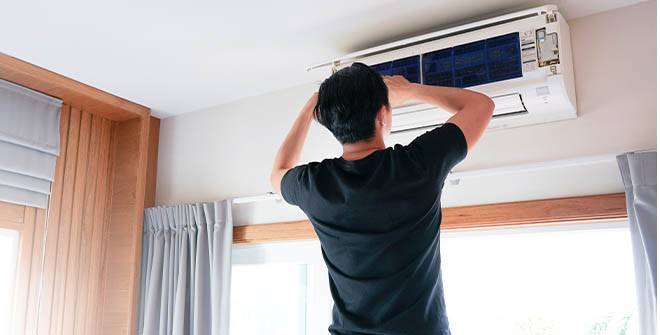
Importance of Installing HVAC system for Indoor Quality
A well-functioning HVAC system is essential for ensuring good indoor air quality. It helps ensure that pollutants are removed from the air, that air is cooled and heated appropriately, and that overall air circulation is adequate. Installing an HVAC system can also help reduce energy costs as it allows you to adjust the temperature throughout your home more efficiently. When installing an HVAC system, it’s important to trust certified technicians as improper installation can disrupt optimal indoor air quality and cause costly repairs down the road. By allowing certified technicians to properly install the HVAC system, you have peace of mind knowing that you will improve your indoor environment while also saving money in the long run.
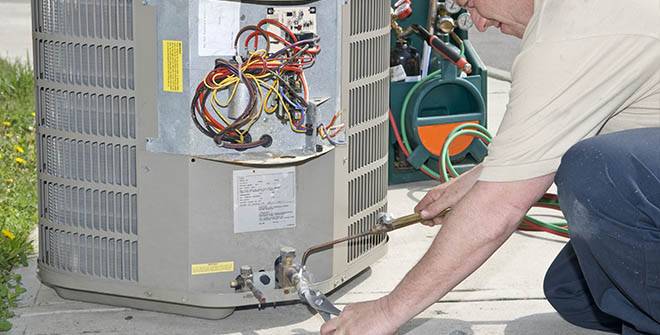
Let us help you with your HVAC installation Needs!
Installing an HVAC system is a worthwhile investment for your home as it can have a direct impact on the quality of your indoor air. Not only can it provide you with greater energy efficiency and cost saving, now that summer has arrived, but an HVAC system also adds value and comfort to your home. With certified technicians from a family-owned company like ours, you will benefit from their hard work, expertise, and experience to ensure that the job is done right. Plus, unlike dealing with large companies, customers are treated with personalized attention and care. So don’t delay any further, contact us today and take advantage of our exclusive offers. We would be more than glad to help you out with all kinds of HVAC installation services at affordable prices!
